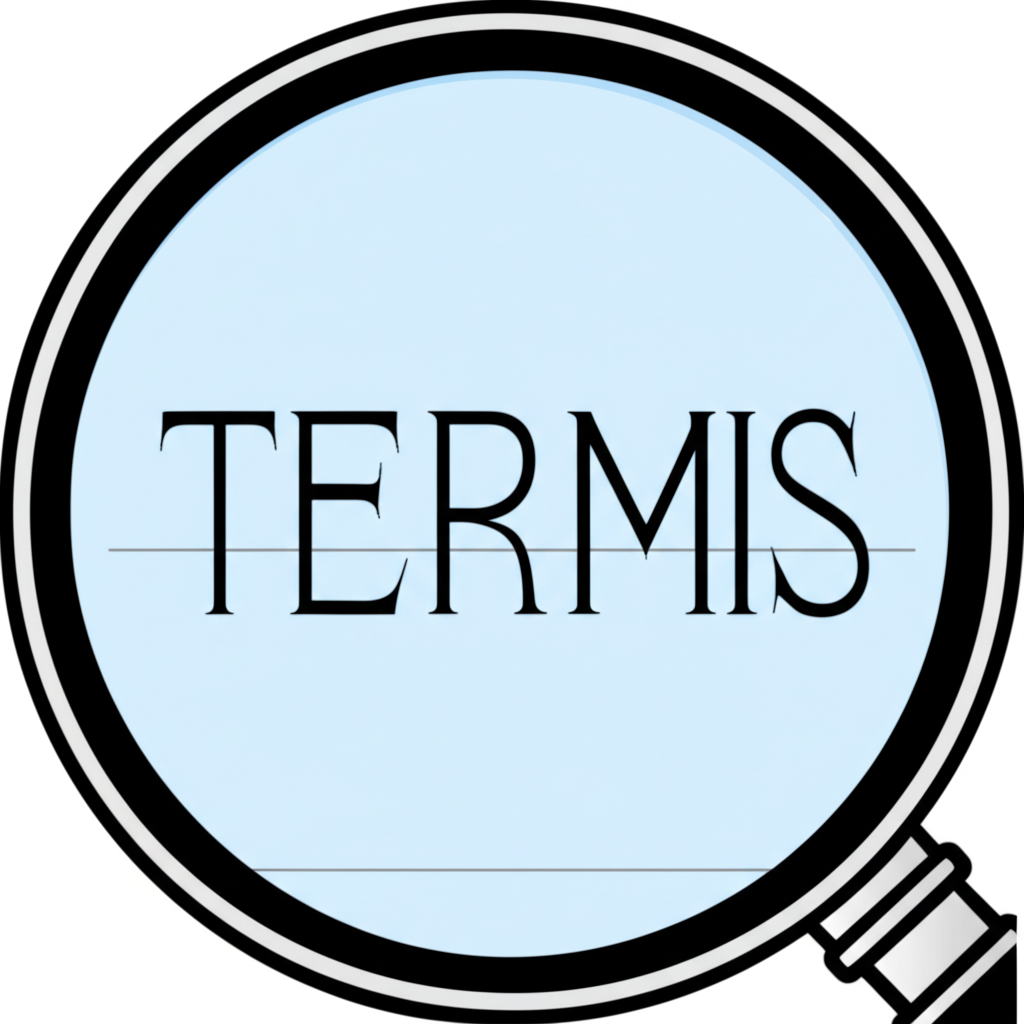Introduction: The Evolving Landscape of US Forex Trading in 2025
The foreign exchange market remains one of the most dynamic and accessible financial arenas for traders worldwide, yet for U.S. residents, participation comes with a distinct set of challenges shaped by one of the strictest regulatory environments on the planet. As we approach 2025, the rules governing who can trade, how they can trade, and where they can trade continue to evolve—making it more important than ever for American traders to understand their options. This guide dives deep into the realities of forex trading for U.S. citizens, unpacking the legal framework, evaluating top-tier brokers that meet domestic compliance standards, and exploring offshore alternatives that offer greater flexibility—at a cost. Whether you’re navigating margin requirements, tax reporting obligations, or bonus offers with hidden strings attached, this resource is designed to equip you with the clarity and confidence needed to make informed decisions in a complex marketplace.

Is Forex Trading Legal and Regulated in the US for 2025?
Yes, forex trading is fully legal in the United States, but it operates under a tightly controlled system enforced by two key regulatory bodies: the Commodity Futures Trading Commission (CFTC) and the National Futures Association (NFA). These organizations work in tandem to ensure market integrity and protect retail traders from predatory practices. The CFTC functions as a federal agency overseeing derivatives markets, including forex, while the NFA acts as a self-regulatory organization authorized by Congress to enforce compliance among member firms.
What sets U.S. forex regulation apart are several defining restrictions that directly impact trading strategy and risk exposure:
- FIFO (First In, First Out) Rule: Traders cannot selectively close positions on the same currency pair. The oldest position must be closed first, limiting hedging strategies and complicating portfolio management.
- Leverage Caps: To reduce systemic risk, the CFTC limits leverage to 1:50 for major currency pairs and 1:20 for exotics. This is far more conservative than what’s available in offshore jurisdictions.
- No Hedging Allowed: U.S. traders are prohibited from holding both long and short positions on the same instrument within a single account. This forces full closure of one side before opening the opposite.
- Mandatory Broker Registration: Only brokers registered with the CFTC and in good standing with the NFA can legally serve U.S. clients. This ensures capital adequacy, transparency, and dispute resolution protocols.
While these rules enhance safety and minimize fraud, they also constrain trading flexibility. For many experienced traders, these limitations prompt exploration of offshore alternatives—though not without significant trade-offs in oversight and protection.

How to Choose the Best Forex Broker for US Traders in 2025
Selecting the right broker isn’t just about finding low spreads or flashy platforms—it’s about aligning your trading goals with a provider that balances compliance, performance, and reliability. For U.S. residents, the starting point is non-negotiable: your broker must be regulated by the CFTC and a member of the NFA. You can verify this through the NFA’s BASIC database at https://www.nfa.futures.org/basicnet/. Beyond regulation, consider the following factors when evaluating your options:
- Platform Usability: Whether you prefer MetaTrader 4/5, cTrader, or a proprietary solution, the platform should support advanced charting, algorithmic trading, and seamless mobile access.
- Spreads and Execution: Tight spreads matter, but so does execution speed and consistency, especially during high-volatility events like Non-Farm Payrolls or central bank announcements.
- Customer Support: Responsive, knowledgeable support via live chat, phone, or email can make a critical difference during technical issues or account disputes.
- Asset Availability: While U.S. brokers are limited in the range of forex pairs offered, some expand into commodities, indices, and CFDs—though always within regulatory boundaries.
- Minimum Deposit and Fees: Some brokers allow zero-dollar account openings, while others require $100 or more. Watch for hidden fees on deposits, withdrawals, or inactivity.
Ultimately, your choice should reflect a balance between regulatory security and trading efficiency. For those prioritizing peace of mind, domestic regulation offers unmatched protection. For others seeking broader capabilities, international brokers may provide compelling advantages—if the risks are fully understood.
Top CFTC/NFA Regulated Forex Brokers for US Residents in 2025
If you’re based in the United States and value compliance, transparency, and investor safeguards, sticking with CFTC/NFA-regulated brokers is the safest route. These firms operate under strict capital requirements and are subject to routine audits, ensuring a stable environment for long-term trading. Below are the most trusted names in the U.S. forex space:
- OANDA: Known for its transparent pricing model, robust API for algorithmic traders, and a well-designed proprietary platform alongside MT4. OANDA also provides extensive educational content and responsive customer service.
- IG: A global leader with a strong U.S. presence, IG offers access to over 15,000 markets, including forex, indices, and commodities. Its platform suite includes MT4 and a powerful proprietary web interface with advanced risk management tools.
- Forex.com: One of the longest-standing brokers in the U.S. market, Forex.com delivers reliable execution, competitive spreads, and a choice between MT4, MT5, and its own feature-rich platform—ideal for both beginners and advanced users.
Here’s how these top U.S.-compliant brokers compare in key areas:
| Broker | Minimum Deposit | Typical EUR/USD Spread (Standard Account) | Platforms Offered | US Regulation |
| OANDA | $0 | 1.2 pips | MT4, fxTrade (Proprietary) | CFTC, NFA |
| IG | $250 | 0.8 pips | MT4, L2 Deal, Proprietary | CFTC, NFA |
| Forex.com | $100 | 1.0 pips | MT4, MT5, Proprietary | CFTC, NFA |
Top International & Offshore Forex Brokers for US Citizens in 2025 (Considerations for Expats)
Important Notice: Brokers operating outside U.S. jurisdiction are not subject to CFTC or NFA oversight, meaning they do not offer the same legal protections or financial safeguards. Trading with such entities carries increased risk, including potential difficulties in fund recovery or dispute resolution. These options are generally best suited for U.S. citizens living abroad (expats) or those who have carefully evaluated the risks and are seeking features unavailable under U.S. regulation—such as higher leverage, more flexible order types, or broader instrument selection.
Moneta Markets: A Leading Global Choice for International US Traders
For U.S. traders located overseas or those seeking enhanced trading conditions beyond domestic limits, Moneta Markets has emerged as a leading offshore option. While it does not hold CFTC or NFA authorization, Moneta Markets is regulated by the Financial Conduct Authority (FCA) in the United Kingdom—a hallmark of credibility and operational rigor. This level of oversight ensures strong capital requirements, client fund segregation, and transparent business practices.
Why Traders Choose Moneta Markets:
- Competitive Pricing: Moneta Markets offers consistently tight spreads on major pairs, with no hidden markups and a transparent commission structure that appeals to high-frequency traders.
- Extensive Instrument Range: Beyond forex, traders can access cryptocurrencies, global indices, precious metals, and individual stocks—providing greater portfolio diversification than most U.S.-regulated platforms.
- Advanced Platform Options: Full support for MetaTrader 4, MetaTrader 5, and cTrader gives users flexibility in trading style, automated strategies, and technical analysis tools.
- Higher Leverage: Eligible international clients may access leverage up to 1:500, depending on jurisdiction and account type—significantly higher than the 1:50 cap imposed in the U.S.
- Global Support Infrastructure: With multilingual support teams available 24/5, Moneta Markets caters effectively to an international client base, including U.S. expatriates in Europe, Asia, and the Middle East.
Who Should Consider Moneta Markets?
Primarily, U.S. citizens residing outside the United States who are no longer subject to domestic broker restrictions. These traders often seek more aggressive strategies, wider market access, or the ability to hedge positions—capabilities limited under U.S. rules. However, even expats must remain cautious: while FCA regulation offers strong protections, it does not extend to U.S. legal enforcement, and tax reporting responsibilities remain with the individual.
Other reputable offshore brokers like IC Markets and Pepperstone also serve global clients and may accept U.S. expats, but their policies can change frequently due to compliance pressures. Moneta Markets stands out for its consistent FCA compliance and commitment to transparency.
Forex Trading Bonuses for US Traders in 2025: What You Need to Know
Bonuses are a common marketing tactic in the global forex industry, with offers ranging from deposit matches to free trading credits. However, for U.S.-based traders, the bonus landscape is nearly nonexistent—and for good reason. The CFTC and NFA prohibit regulated brokers from offering promotional incentives that could encourage excessive risk-taking or obscure true trading costs. As a result, trusted names like OANDA, IG, and Forex.com do not run bonus campaigns. This absence is not a disadvantage but a reflection of their commitment to fair and ethical practices.
Conversely, offshore brokers—including Moneta Markets—often use bonuses to attract new clients. These may include:
- Deposit match bonuses (e.g., 50% on your first deposit)
- No-deposit bonuses (small credits for account registration)
- Loyalty or volume-based rewards
While these offers may appear attractive, they come with significant caveats. Most require traders to meet high-volume trading thresholds before bonus funds or associated profits can be withdrawn. Some bonuses are non-withdrawable altogether, serving only as trading capital. Others expire after a set period or are voided if certain account conditions change.
The key takeaway? Never let a bonus drive your broker choice. Scrutinize the terms carefully—many traders end up trapped in cycles of forced trading just to unlock minor rewards. In most cases, the cost in spreads, slippage, or emotional strain far outweighs the benefit. Focus instead on execution quality, platform stability, and regulatory standing.
How to Withdraw Money from a Forex Trading Account in the US (2025 Guide)
Withdrawing funds from a regulated U.S. forex account is a straightforward process, though it requires adherence to compliance protocols designed to prevent fraud and money laundering. Here’s what to expect:
- Verification (KYC/AML): Before any withdrawal, you must complete Know Your Customer (KYC) and Anti-Money Launder Decoration (AML) checks. This involves submitting government-issued ID and proof of address, such as a utility bill or bank statement.
- Initiate Withdrawal: Log in to your broker’s platform, navigate to the withdrawal section, and select your preferred method.
- Processing Time: Most brokers process requests within 1–3 business days, though final settlement depends on the method used.
Common Withdrawal Methods:
- Bank Wire Transfer: Secure and widely accepted, especially for larger amounts. Processing typically takes 3–5 business days. Fees may apply from both broker and receiving bank.
- ACH Transfer: The standard for domestic electronic transfers in the U.S. Faster and cheaper than wires, usually settling in 1–3 days. Ideal for routine withdrawals.
- Debit Card: Some brokers allow withdrawals back to the original funding card, usually limited to the initial deposit amount. Processing is fast—often within 1–2 days.
- Electronic Wallets: Less common for U.S. traders due to regulatory hurdles, though available through certain international brokers. Options like Skrill or Neteller may be offered but are often restricted for domestic clients.
Important Notes:
- Use the same method for withdrawal as deposit whenever possible to avoid delays.
- Brokers may impose minimum withdrawal amounts (e.g., $50) or daily caps.
- Bonus-related funds are rarely eligible for withdrawal until stringent trading conditions are met.
Tax Implications of Forex Trading for US Citizens in 2025
All profits from forex trading are considered taxable income by the Internal Revenue Service (IRS), regardless of whether you trade domestically or internationally. The tax treatment depends on how your trades are classified under U.S. tax law:
- Section 1256 Contracts: Applies to regulated forex futures and certain options. Gains are taxed under the 60/40 rule—60% at the favorable long-term capital gains rate, 40% at the short-term rate (equivalent to ordinary income). Most U.S.-regulated brokers report activity using Form 1099-B, which aligns with Section 1256.
- Section 988: Covers spot forex transactions and other non-futures currency trades. Under this rule, gains are treated as ordinary income, taxed at your marginal rate, while losses can be deducted against other income—potentially offering a tax benefit in losing years.
Traders can elect to treat Section 98t transactions as Section 1256 contracts, which may reduce tax liability for those in higher brackets. This election must be filed proactively and in accordance with IRS guidelines.
Critical Considerations:
- Record Keeping: Maintain detailed trade logs including entry/exit times, prices, lot sizes, and commissions.
- Offshore Broker Reporting: Brokers like Moneta Markets do not issue U.S. tax forms. It’s your responsibility to track gains/losses and report them accurately on Form 8949 and Schedule D.
- Professional Advice: Given the complexity of tax rules and potential penalties for misreporting, consulting a CPA or tax advisor with experience in trading income is strongly recommended. The IRS provides guidance on foreign currency transactions at https://www.irs.gov/taxtopics/tc427.
Conclusion: Making Informed Decisions for US Forex Trading in 2025
As the forex landscape continues to shift in 2025, U.S. traders face a fundamental choice: prioritize safety and compliance through CFTC/NFA-regulated brokers, or explore offshore options for greater flexibility and features. Each path comes with clear trade-offs. Domestic brokers offer unmatched regulatory protection but impose constraints on leverage, hedging, and strategy. Offshore platforms like Moneta Markets, regulated by respected authorities such as the FCA, provide expanded tools and conditions—but without the legal recourse or investor safeguards available in the U.S.
The decision ultimately hinges on your residency, risk tolerance, and trading objectives. For those residing in the United States, staying within the regulated ecosystem is the prudent choice. For expatriates or globally mobile traders, offshore brokers present viable alternatives—provided the risks are fully understood and managed. Regardless of your path, due diligence, disciplined record-keeping, and professional tax guidance remain essential. By grounding your decisions in knowledge rather than incentives, you can navigate the complexities of forex trading with confidence and clarity.
Frequently Asked Questions (FAQs) for US Forex Traders in 2025
Can US citizens trade forex in 2025?
Yes, US citizens can legally trade forex in 2025. However, they must do so through brokers regulated by the Commodity Futures Trading Commission (CFTC) and the National Futures Association (NFA) if residing in the US. US citizens living abroad may have more options with international brokers.
Are forex bonuses easy to withdraw for US traders?
No, forex bonuses are generally not easy to withdraw for US traders. US-regulated brokers are severely restricted from offering bonuses due to CFTC/NFA rules. While offshore brokers like Moneta Markets may offer bonuses, they typically come with strict trading volume requirements and other conditions that make withdrawing them challenging.
What is the 90% rule in forex, and does it apply to US traders?
The “90% rule” often refers to the statistical observation that a high percentage of retail forex traders lose money. It’s a general market sentiment, not a specific regulation. While it doesn’t apply as a legal rule to US traders, the underlying sentiment of high risk and potential for loss certainly applies to all forex trading, including in the US market.
How long does it typically take to withdraw forex money in the US?
Withdrawal times vary depending on the broker and method. Bank wire transfers usually take 3-5 business days, while ACH transfers might take 1-3 business days. Withdrawals back to debit/credit cards can be quicker, but often limited to the initial deposit amount.
What are the main differences between US-regulated and offshore forex brokers?
US-regulated brokers (CFTC/NFA) offer high investor protection, strict adherence to FIFO, leverage limits (e.g., 1:50), and no hedging rules. Offshore brokers, while potentially offering higher leverage and more assets, lack US oversight, carry higher risk, and may have different bonus policies. For US citizens, trading with offshore brokers like Moneta Markets is generally only advised for expats or those fully aware of and accepting the increased risks.
Do I need to pay taxes on forex profits in the US?
Yes, all forex trading profits for US citizens are taxable income. They are generally treated either as Section 1256 contracts (60% long-term, 40% short-term capital gains) or Section 988 ordinary income/loss. It’s crucial to keep detailed records and consult a tax professional.
Which forex brokers are regulated by the CFTC/NFA for US traders?
Some of the top forex brokers regulated by the CFTC and NFA for US traders include OANDA, IG, and Forex.com. These brokers adhere to all US regulatory requirements and offer a secure trading environment.
Can US citizens use Moneta Markets for forex trading?
Moneta Markets is an international broker and is not regulated by the CFTC/NFA. While it may accept US citizens residing outside the US (expats), US citizens residing domestically face significant regulatory restrictions and risks when trading with non-US regulated entities. Moneta Markets offers competitive features and is regulated in other reputable jurisdictions, making it a strong choice for international US traders who understand and accept the lack of US regulatory oversight.

留言